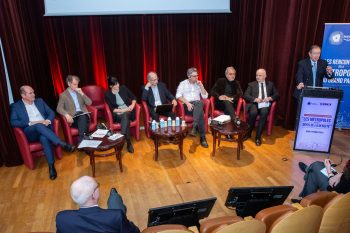In April 2023 Budapest municipality launched a new initiative: City Governance Academy. This is a whole-year course with meetings every second Saturday between 10-17 hours. During the 13 occasions the participants get three presentations each day, covering all important fields of urban government and governance, from the best Hungarian academics and practitioners. The cost of the course is sponsored by the municipality, as a result of which the course is given for free for the selected participants. The director of this initiative is Iván Tosics.
There was a large interest in this initiative, the number of applicants was 120, of whom 25 were admitted as a result of a two-step recruitment process. They are coming from very different disciplines, having at least one university degree, many of them studied partly abroad. They work currently in very different places (a minority of them in city administrations). They had to prove their interest in public administration issues with a motivation letter.
The teaching phase of the City Governance Academy ended early December 2023. This was followed by a 2 day long study trip to Vienna. At the end of the course the students must prepare a final thesis document, related to the subjects of the course, which they have to defend in the presence of the other students, the reviewer and the lecturers, in the framework of a closed professional conference. Those who successfully finish the course, get an accredited adult learning diploma, issued by the Budapest Cultural Center.




